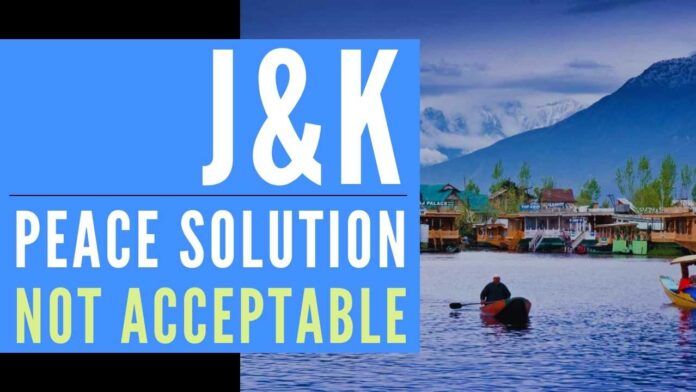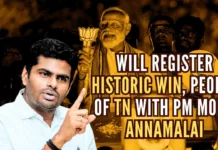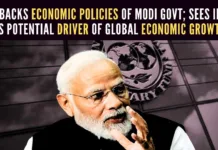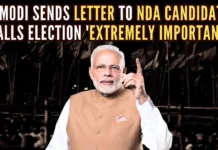
Islamabad has been using all available forums to put across its devious point of view
On April 26, 2021, Pakistan again crossed the red line and interfered in India’s internal affairs in a most brazen manner. Pakistan Foreign Minister Shah Mahmood Qureshi said that “if India is willing to re-visit some of the decisions that it took on August 5, 2019, Pakistan will be more than happy to engage, sit and talk and resolve all outstanding issues, including Kashmir, Siachen, Sir Creek, water and other minor issues”. “The only sensible way forward is the dialogue,” he said. He made these statements in Turkey.
What Qureshi said was not altogether unexpected. This part of J&K has been Pakistan’s war-cry ever since 1947. Islamabad has been using all available forums to put across its devious point of view that “J&K is an unfinished agenda of partition” and that “if peace is to return to the region, Kashmir has to be resolved”.
It’s altogether a different story that Islamabad hides the fact that the 560-odd princely states, including J&K, were not part of the 1947 partition plan under which Pakistan was created out of India misruled and exploited directly by London. There was no ambiguity whatsoever in the partition plan.
It would also not be out of place to emphasize here that the problem in Kashmir is not 73 years old. It is 682-year-old. As far as J&K is concerned, the problem in Kashmir is 175-year-old.
Sadly, the fast-disintegrating Kashmir-based parties like National Conference (NC) and the People’s Democratic Party (PDP), which misgoverned J&K and jeopardized paramount national interests in this border state for decades, have also been expressing views that are almost similar to the ones being expressed by Islamabad. Politicians belonging to these outfits including Farooq Abdullah, Omar Abdullah and Mehbooba Mufti, who also have floated Gupkar Alliance aimed at restoring the pre-August 2019 position in J&K, have been using all kinds of invectives and epithets against PM Narendra Modi and HM Amit Shah for what they did on August 5 that year to undo the Nehru’s grave wrongs – Article 35A and Article 370 – and remove from the Indian statute book everything that had held J&K aloof from the rest of the country for over 70 years. So much so, they have called PM Modi and HM Shah “thieves”. “They violated the agreement and stole our Articles 35A and 370 in a broad daylight,” they said umpteen times.
The “peace solution” Pakistan has offered and the “peace solution” the Kashmir-based NC, PDP and other members of the Gupkar Alliance, including CPI and CPI-M, have been offering is, in fact, two sides of the one and same coin. Their “peace solutions” simply mean the creation of a situation in which Pakistan would have an effective and real say even in this part of J&K, Kashmiri leadership will again exercise absolute powers, the people of Jammu province and internally-displaced Kashmiri Hindus would again lead a life of servitude and the only duty of New Delhi would be to pump millions and millions of crores of rupees in Kashmir and no say in J&K affairs whatsoever. To be more precise, Pakistan and Gupkar Alliance vouch for an independent status for J&K on the score of religion, if possible, and semi-independent or semi-sovereign status, if the first “peace solution” is not acceptable to India.
Will the restoration of the pre-August 2019 status restore “peace” in J&K? The answer is a big NO. Did J&K witness peace and tranquility between January 26, 1950, when Article 370 was applied to J&K throwing to the wind all cardinal principles of secularism and democracy or when J&K granted separate status on the score of religion to pander to separatist Kashmiri leadership — and till August 5, 2019, when the separate status was withdrawn? Again, the answer is a big NO.
The fact of the matter is that Kashmir witnessed attacks on the Indian State and its symbols at regular intervals between 1950 and 1987 and J&K witnessed innumerable brutal terrorist attacks between 1987 and 2019 which left several thousand innocents dead and rendered lakhs and lakhs of people belonging to the minority communities homeless. Thousands and thousands of our security forces personnel also lost their lives while defending the borders and maintaining internal security.
The fact of the matter is that the undesirables in the political class and establishment ruthlessly exploited the separate status to further widen the already rather wide gulf between Kashmir and New Delhi; crush, oppress and suppress the minorities; promote the cult of gun and terror; advance the geopolitical interests of Pakistan, which already had got on platter areas, now called PoJK and Gilgit-Baltistan region; and pit one community against another like London did in India for centuries to promote her imperial interests.
It would be only appropriate to say that separate status gave rise to the scourge of separatism of an extreme form in Kashmir. And it would also not be out of place to emphasize here that the problem in Kashmir is not 73 years old. It is 682-year-old. As far as J&K is concerned, the problem in Kashmir is 175-year-old.
Remember, J&K State came into being in March 1846 under the Treaty of Amritsar, signed between Raja of Jammu, Gulab Singh, and the British Government. And the Kashmiri religio-political leadership opposed it all through, saying “the Dogras of Jammu purchased the life, dignity and honour of Kashmiri Muslims for Rs 75 lakh” and demanding separation of Kashmir from the Jammu Kingdom. The memories of what the NC did in 1946 against the Dogras are still too fresh to be forgotten. The case in point is the “Quit Kashmir Movement”.
India just can’t afford to endorse any “Peace solution” that further divides the country on religious grounds, reestablishes in J&K a system that only bloodied and convulsed the state’s socio-religious and political scene and muddied Indian waters in J&K for 70 years. There are potent reasons to believe that the Narendra Modi Government will not look back and give a fillip to the process it started in 2019 to tell the international community that J&K was, is and shall always remain an integral part of India.
Note:
1. The views expressed here are those of the author and do not necessarily represent or reflect the views of PGurus.
- ‘Kashmir My core constituency’: Revisiting July 12, 2003 to understand politics, Omar Abdullah-style - March 15, 2024
- Total deviation from traditional approach: Seven takeaways from PM Modi’s March 7 Srinagar visit - March 9, 2024
- Status of political parties: Why is further J&K reorganization imperative? - March 1, 2024










